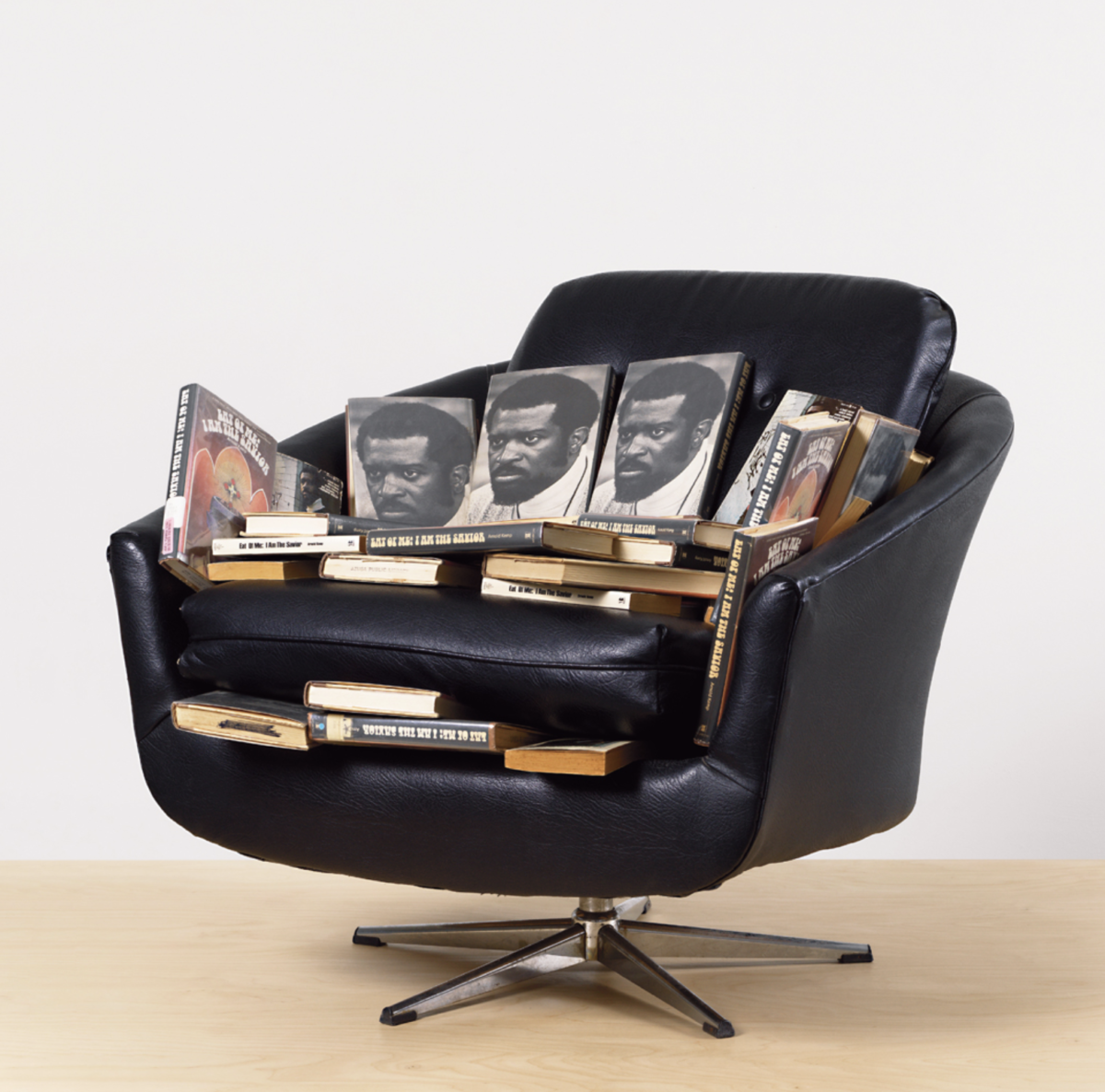Your cart is currently empty!
Pick of the Week: Arnold Kemp JOAN

Art is a reflection of the artist. The culmination of personal experiences, years of study, and distinct perspectives that comprise their life emerge in their works. But none of us are infinitely unique – which is good, for if we were, we’d have no way to relate to one another. In this way, art too must be a reflection of the viewer. The issue is muddied further by greater questions of who is the artist and who is the viewer, both easier asked than answered. These matters of authorship, language, memory, and perspective are masterfully explored in Arnold Kemp’s show “False Hydras,” on view at JOAN until June 19th.
“False Hydras” is obviously composed of sculptures, photographs, and other works by Arnold Kemp the artist and educator, but it features many different Arnold Kemps. Even the title is a reference to a “Dungeons & Dragons” monster created and posted about online by a different Arnold Kemp. Within the game, the memories of any person the monster consumes are wiped from the minds of those who knew them – a fitting beast for a show which deals so heavily in Kemp the artist’s own life.
Another Arnold Kemp referenced in the show is the artist’s grandfather, a tailor from the Bahamas. The work Nineteen Eighty-Four (2020), is comprised of a limestone sculpture made by Kemp in 1984, draped with shorts created by his grandfather. In one of the nooks of the sculpture, there is a cellphone from a performance piece done by Kemp and his father in 2003 about communication between father and son. This work is a culmination of generational artistic efforts, a bridge between Arnold Kemp the tailor and Arnold Kemp the artist.
The most prominent work in the show is Mr. Kemp: Yellowing, Drying, Scorching (2020). A black leather chair is stacked with forty copies of Eat of Me: I am the Savior, a book from 1972 by Black nationalist author, Arnold Kemp. There is a transposition of identity, a conflation of artist and author.
Finally, lying on the floor, there is a single piece of paper which punches straight through the show. Upon the page is written three lines: “I Would Survive; I Could Survive; I Should Survive.” These declarations are affirmations of self, of personal identity untethered to the other; they avow that, even in a world of false hydras, you will always remember yourself.
JOAN
1206 Maple Avenue, Suite 715, Los Angeles, CA 90015
Thru June 19th, 2021